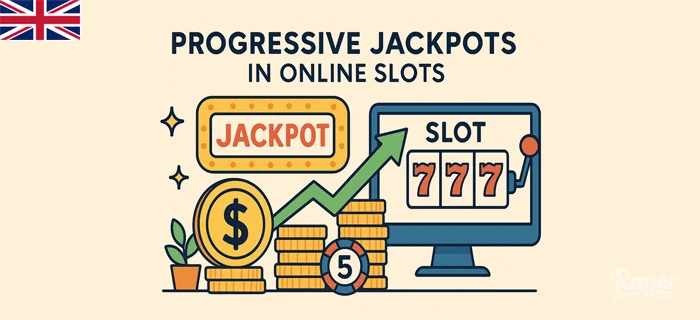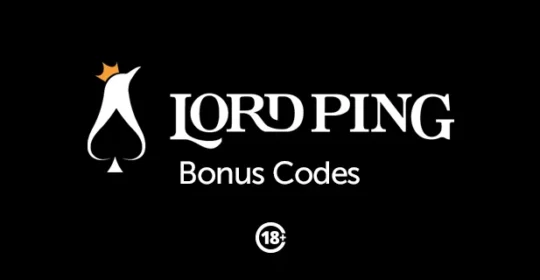You've likely noticed the jackpot counters on a game at a casino just rising second by second. That's a progressive jackpot. The jackpot increases with every game played, so the wins are greater for whoever does win it.
Let's break down how progressive jackpots operate, what kind you'll find in online casinos, and how to play smartly when pursuing those towering jackpots.
Table of contents
The basics: growing jackpots 101
At its most basic, a progressive jackpot is just a growing prize. Infinitesimally small percentages of all bets eligible are added to a common pool. That pool grows until a winner is found, then goes back to zero.
The real magic? These jackpots have the potential to link hundreds of players in numerous different casinos, all competing for the same jackpot.
Types of progressive jackpots
Progressive jackpots come in many forms, depending on how they're set up:
| Type | Description | Typical Jackpot Size |
|---|---|---|
| Standalone | These jackpots are connected to one particular machine or game in isolation. With fewer funds being bet into the pool, the prizes are smaller. | Small to moderate |
| Local (In-Casino) | Various machines within a single casino add to a single jackpot. They grow faster and pay more. | Moderate |
| Wide-Area (Networked) | These are the big ones. Networked between different casinos or geographic regions, they can go up to | Large to very large |
| Must-Drop (Timed/Limited) | These are required to be paid out at a certain time or amount, putting pressure on the players. | Variable (capped) |
Standalone progressives lure occasional players with reduced limits, but their jackpots increase more slowly. Wide-area progressives, in the form of those connected across casinos by top providers, offer multi-million-dollar awards but sometimes have higher minimum bets to enter.
Must-drop jackpots add a clock factor, as the prize must be won when it fills or a countdown clock runs out. This clock pressure makes must-drop jackpots a prime target among players who employ the best bonus buy slots features, which allow them to purchase direct access to bonus rounds for repeated attempts at the upcoming prize.
Core mechanics behind progressive jackpots
To truly understand the intricacies of progressive jackpots, it is important to realize how the prize fund builds up and how it is finally distributed.
| Mechanism | Explanation |
|---|---|
| Contribution Rate | A portion of each wager (generally ranging from 1% to 5%) is dedicated to seeding the jackpot pool. The rest goes to finance the base game payback and the casino operation. |
| Random Number Generator (RNG) | An algorithm to render every game outcome equitable and random. The RNG can also award the jackpot randomly, as a game-design function. |
| Trigger Conditions | Jackpots are given by achieving a specific high-paying symbol combination, by triggering a bonus round (e.g., wheel spin), or by a completely random trigger regardless of the payline. |
- Contribution Rate – Every time a player wagers on a progressive game, a portion of the wager is contributed to the jackpot pool. On a €1 spin with a 3% contribution rate, say, €0.03 is contributed to the prize. Whilst this lowers the short-term return-to-player (RTP) on the base game marginally, the increasing jackpot can easily make up for players in search of a big, life-changing prize.
- RNG and Fairness – The integrity of any progressive jackpot relies on the implementation of a certified RNG, whose results are truly random and cannot be tampered with. Some games incorporate an independent RNG process for awarding the jackpot payment only, and this may be entirely random and not symbol combination-based.
- Trigger Conditions
- Symbol-Based: All players need to hit a very unusual combination of jackpot symbols along a paying line.
- Bonus Round: Triggering a bonus game, like spinning a prize wheel, might win the top prize.
- Random Drop: The machine can pay out the jackpot at random intervals, regardless of the symbols shown, with each spin having an equal chance.
Notable progressive jackpot games
Some of the biggest jackpots from online casinos have come from progressive games. Here are a few that have hit the headlines:
| Game Title | Developer | Reported Highest Jackpot |
|---|---|---|
| Mega Moolah | Microgaming | Over €18.9 million |
| Mega Fortune | NetEnt | Over €17.8 million |
| Hall of Gods | NetEnt | Around €12 million |
| Arabian Nights | NetEnt | Approximately €8.6 million |
| MegaJackpots | IGT | Up to $39.7 million |
Considerations and responsible play
Progressive jackpots can be fun, but they are also casino games to be played in the long run. Keep these things in mind:
- Check the bet max requirements – Progressives, in some cases, need a high bet to win the jackpot. Failing to achieve this amount may reward bonus rounds, but will disqualify the player from the jackpot.
- Variance and Volatility – Progressive slots tend to be high-variance: extended losses or small winning runs can lead up to an ultimately rewarding jackpot occurrence. Players will need to be prepared for potentially extended dry spells.
- House Edge Impact – Because part of every wager is contributing to the payment of the jackpot, in theory, the RTP of the non-progressive base game is ever so slightly less. In the long run, this affects the overall return.
- Budget Management – It is strongly advised to put strict controls on losses. To others, having a small predetermined amount to spend on each session and quitting when it is spent will prevent chasing losses. Play for fun, not as a means of earning money.
Potential future developments
New tech like blockchain could make it more transparent how jackpots build up and when they are paid. There are preliminary versions, but the concept is still under construction.
Bottom line
Progressive jackpots are all about possibility. With each spin, the jackpot grows—and though the chances aren't high, the thrill is real. If you want to hit the big one and feel even bigger, they're worth a try. Just make sure to play responsibly, set limits, and hold on to your seat.





